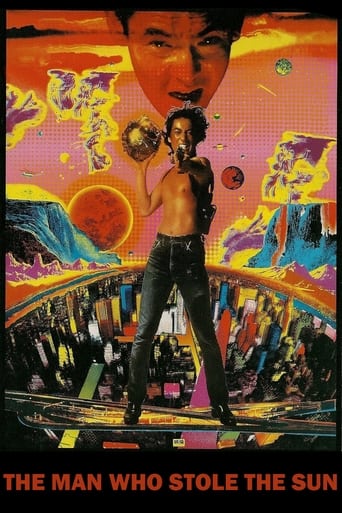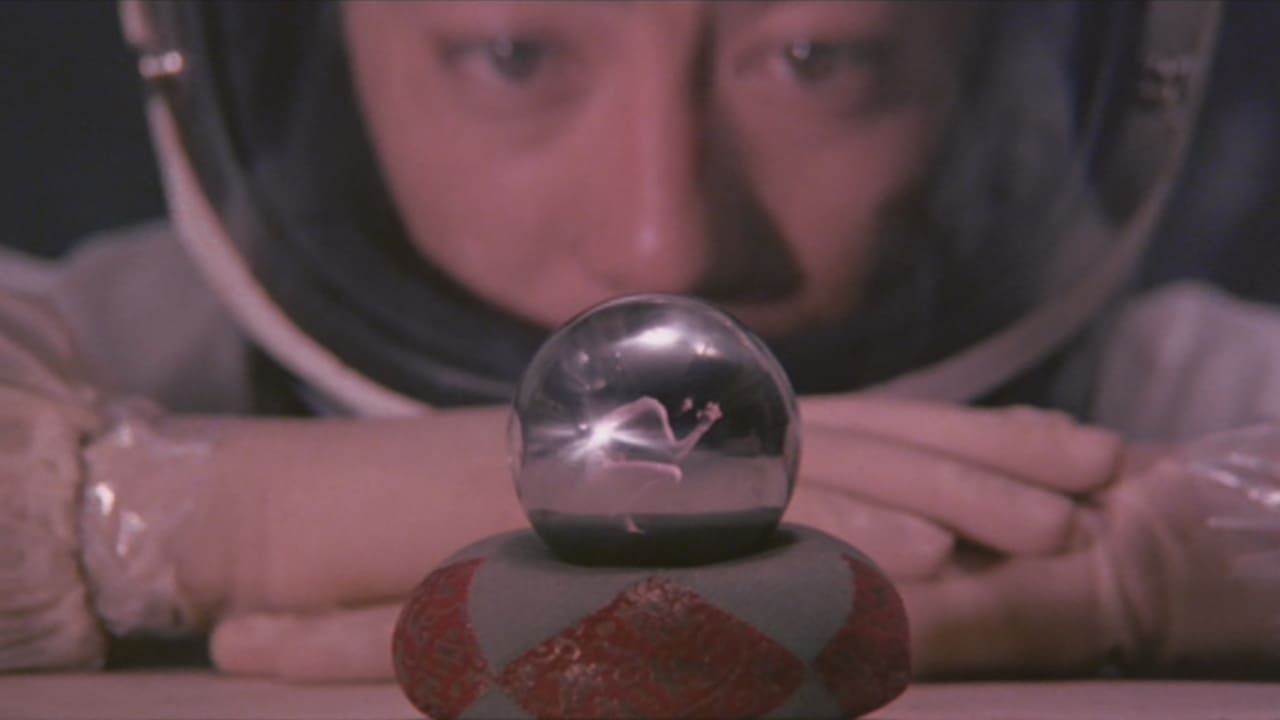mevmijaumau
This is the second and the final film directed by Kazuhiko Hasegawa (excluding a super-obscure pinku film), whose mother was subjected to the Hiroshima radiation while she was pregnant with him. As chance would have it, The Man Who Stole the Sun is a film that deals with nuclear paranoia, its title mirroring the scary idea that practically anyone could make an atomic bomb if determined enough. Some of the footage from the film was cut at government request because the bomb-making instructions were too detailed. The film was co-written by Leonard Schrader (brother of Taxi Driver writer Paul Schrader), who lived in Japan at the time.The two main characters are polar opposites in terms of their significance in pop-culture. The protagonist is played by Kenji Sawada (aka Julie Sawada), a pop-star and a plain symbol of the new generation, while his rival is played by Bunta Sugiwara, who became famous playing hard-boiled gangsters (one character in this film remarks; "He looks more like a gangster than a cop to me"). Their cat and mouse game makes way for an unpredictable plot, partially set during the actual Communist Party May Day march, where the scenes were mostly shot without permission, and assistant director Kiyoshi Kurosawa (later a famous director of his own) got arrested for throwing fake money off of a building and almost inciting a riot.Despite its preposterous length, the movie keeps your attention throughout with the help of many tonal shifts. Without pardon it goes from a hostage crisis thriller to a cutesy school drama, action comedy, nuclear thriller, quirky romance with a radio host, experimental lunacy, car chase and finally an epic standoff as a part of an outrageously ballsy and over- the-top finale which makes everything worthwhile in the end. Amazingly strange. I also dig the 70s feel to it, from the soundtrack to the color scheme where everything is seen through pink lens.
rjobrien_1943
I watched the Hong Kong DVD release of this film - still available, I believe - which offers reasonable quality, though the Japanese characters have been given Chinese names and the English subtitles are sometimes poor. I thought the first half of the film was intriguing, outlandish, imaginative and weirdly funny. The introduction of a rather irritating DJ character added little to the movie, other than an obligatory romantic interest for the anti-hero. As other reviewers have pointed out, the film goes on too long, offering a succession of action set-pieces that seem at odds with earlier scenes. The main character's motivations remain a mystery and the downbeat ending falls a little flat, given the subject matter. For all these faults, I'd give it another look, but what could have been a great movie slipped away somehow.
angelosnow
The Man Who Stole The Sun "Taiyo o nusunda otoko" (1979) The Man Who Stole the Sun is a title which invokes the myth of Prometheus, who stole fire from the Gods to give to man and was duly punished for it. The film revolves around a science teacher, Makato Kido (Kenji Sawada) who steals the secrets of the atom, constructing his own atomic bomb from stolen plutonium and holding Tokyo to ransom.Kido, the long haired, bubble gum chewing teacher who smokes too much and sleeps in class, goes by the terrorist codename "Nine". A symbolic reference to the eight nations who possess nuclear weapons (America, Soviet Union, England, France, China, India, Israel, South Africa), thus making him, potential nuclear threat number nine. Kido's flawed portrayal is as a man who desires the knowledge and power of an atomic bomb, yet upon attaining it, he is at a loss on what do with it. Subsequently, he calls up the vacuous, pretty radio hostess "Zero" (Kimiko Ikegami) and asks what others would demand if they had a nuclear bomb. The demand: that Rolling Stones would perform in Tokyo.The Rolling Stones is just one reference which contextually marks this late 1970s film. The other themes of the film: the Vietnam and Cold War, nuclear proliferation and the power of nations over the individual, reflects a social context where the autonomy of the individual was second to government agendas. By giving nuclear power to Kido, the film espouses a very liberal agenda of an individual (or public opinion) being able to assert his will on the government.Yet, as with many Japanese films, the fascination of the bomb its raw destructive potential as well as its slow decaying effects is a constant reminder of what the dangers of such power, placed in the wrong hands, can do. But who can blame them, being the only nation to experience the devastating effects of the atomic bomb? (Apart from South Australia of course, but according to the government, Aborigines don't count). "Prolonged exposure to radiation leads to hair loss, tissue decay and eventual death" Zero tells us. The death of Kido's cat through plutonium poisoning, hair falling out, bleeding gums, nausea, vomiting and finally culminating in Zero's ironic death as an indirect result of the bomb are constant reminders of this.Cinematically, Tokyo is captured beautifully through filters, portrayed as an almost surreal, blue urban landscape which infests the very streets, office hallways and the panoramic locations. The scenes in which Kido steals the plutonium is one of the highlights, reminiscent of the stills sequence of Chris Marker's La Jetée. Iran and South Korea could even take a few pointers from Kido's plutonium enrichment techniques heating by home stove-oven.However, the film falls flat in the last half hour. The director had three chances to resolve the ending, but he forgoes all three. As a result, the film seems to protract itself needlessly. The last few minutes turns almost into a mockery of what the director had worked to build in the first one and a half hours, degenerating into a clichéd Hong Kong-esquire action/comedy car-chase and final violent showdown. It also shatters the audience's presumptions about Kido's character, as he desperately attempts to hold onto the bomb which he has no real use for.The film finally ends the only way it could be ended at this point with Kido strolling down the street, atom bomb at his side. Like the bubble gum Kido seems to blow continuously, the atomic bomb (and the story) is finally stretched beyond its natural limits, leaving it with only one thing left to do: burst.
Nam
Very well make... there are car chasing, gun shooting and even more... after watching this movie you may know how to make an atomic bomb!! Try to pick up this film in Video or Vcd.


 AD
AD


